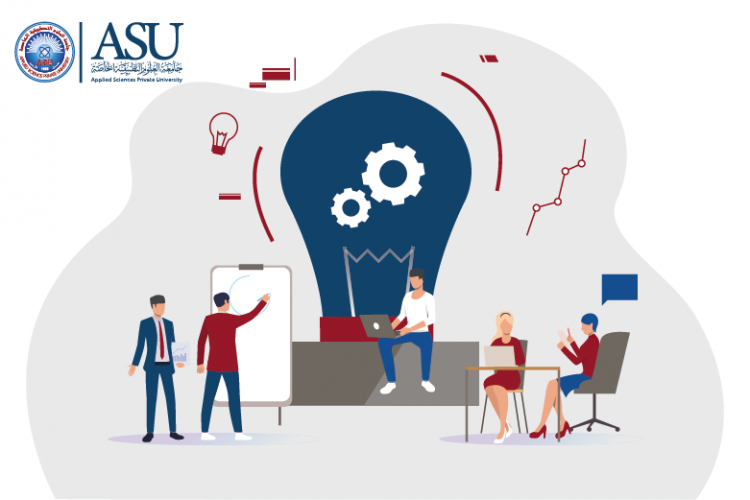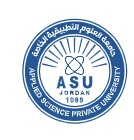Supporting student entrepreneurship to address society’s biggest challenges

Sponsored by

Sponsored by

Innovation projects at ASU aim to boost local economies and encourage sustainable development
Central to the mission of higher education institutions, alongside furthering our understanding of the world around us, is disseminating knowledge widely and effectively. With this in mind, the Applied Science Private University (ASU) in Jordan is seeking to increase its engagement with the translation of scientific knowledge for the public good.
The Innovation and Entrepreneurship centre (ICE) was established at ASU in 2018 to transform entrepreneurial and innovative ideas into tangible real-world projects. Headed up by Dr Iman Al-Bashiti, it is a practical space designed to encourage independent thinking and hands-on learning among its students.
Dr Yousra Odeh is assistant director of the ICE at ASU. She describes the centre as “a service space and maker space” for students to “explore, build and share ideas”.
A small country with a rapidly developing economy, Jordan has seen its reputation as a centre for research and innovation growing. Dr Odeh hopes that the projects under way at the centre will not only boost the national economy but also encourage sustainable development practices in the region.
Inter-regional and interdisciplinary collaborations are an important focus for the centre. In 2019, ASU became a founding member of the Make Impact Consortium (MIC), one of the first universities in the Middle East to join the extended community of universities and companies working to accelerate the integration of technology, innovation and entrepreneurship. The consortium is led by the Massachusetts Institute of Technology.
Dr Odeh hopes to expand the centre’s collaborative projects to span a variety of research fields. “The university is interested in all themes that impact the social good,” she explains, listing areas including healthcare, education, entertainment, agriculture, water, environment, jobs and business.
The ICE runs four main projects, including its MIC Makerspace, which aims to provide resources to speed up the integration of technology, innovation and entrepreneurship within universities and technology innovation ecosystems in the surrounding cities and regions. Members of the MIC Makerspace will work together to build a global consortium to define societal needs and create the resources needed for the next generation of entrepreneurial thinkers.
Staff and students working with the ICE can also make use of the ICE Incubator, which supports the development of new projects with equipment and expertise. Meanwhile, the Space is a specially designated meeting place for private study and collaboration.
Each year, the ICE hosts a competition to find the most creative and innovative ideas that can be translated into commercial ventures at the centre.
Dr Odeh has ambitious plans for the centre, including significant expansion of its laboratories and fields of research. “This is to increase the opportunities for engaging more students in these labs, [which] means more potential innovations,” she says.
ASU also plans to establish a platform through which ICE students can access materials to support the development of their projects. “At present, the website is the place where students can access what is required,” Dr Odeh explains. “However, in the future, we aim at creating a cloud storage to archive all needed material in innovation for students.”
Find out more about the ICE at ASU.